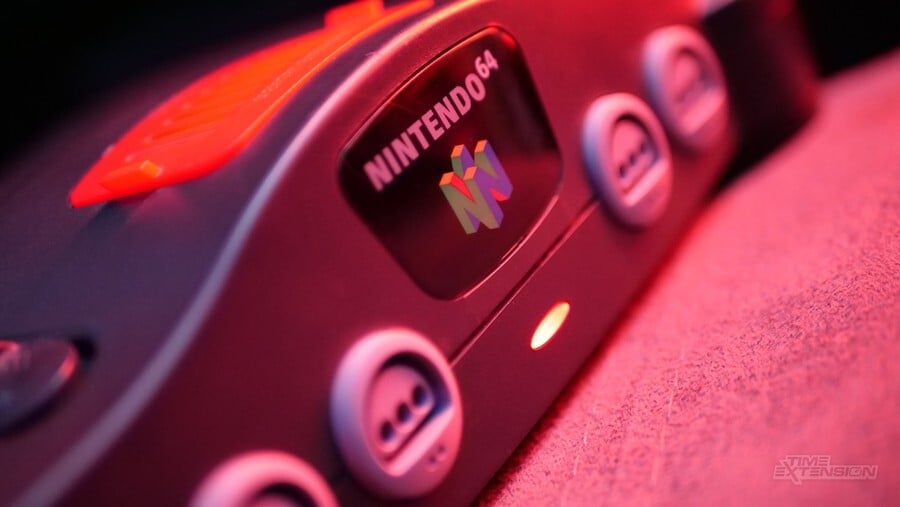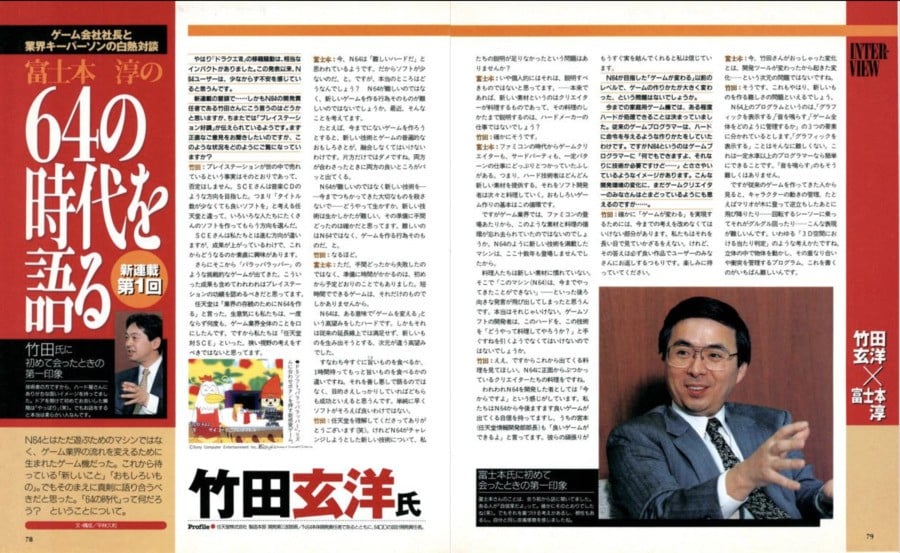
While the Nintendo 64 managed to secure a second-place position in the console wars in the West, it was a slightly different story in Japan.
According to Nintendo's own figures, the console only managed to shift 5,540,000 units in the region, with other sales numbers collected on Wikipedia pointing to the Sony PlayStation and Sega Saturn being the more dominant consoles on the market. The reasons given for this typically refer to the quality of the games released for those other machines as well as the N64's lackluster third-party support — which came about, in part, due to the console deciding to stick with expensive cartridges instead of a significantly cheaper media format like CD-ROMs.
Recently, we've been doing a lot of digging into the history of the N64 for an upcoming article and came across an interesting never-before-translated interview in Dengeki N64 Magazine Issue 12 (dated May 12th 1997). This seemed to shed a bit more light on the console's disappointing response in the region. So we had the Japanese-to-English translator Liz Bushouse help translate some of the relevant sections to see what insights they contained.
The interview in question is with the Nintendo R&D3 general manager Genyo Takeda (who was responsible for leading the development of the N64) and covers a range of topics about the console, but it's the first question and answer that we felt was particularly worth highlighting today.

It sees the journalist Hisakazu Hirabayashi asking Takeda about the recent uproar following Dragon Quest VII's defection to PlayStation in early 1997 and enquiring about his honest opinion on PlayStation's remarkable success.
Here's a translation of that section of the interview:
Dengeki N64: The uproar about Dragon Quest VII going over to PlayStation definitely had a big impact. I think N64 users have felt pretty uneasy after that announcement. I feel bad bringing this up at the very beginning of this new series and especially to you, Mr. Takeda, as a development manager for the N64, but as far as the public’s concerned, the PlayStation is doing very well. First, I’d like to hear your honest opinion on that. How do you view the situation?
Takeda: I can’t deny the fact that the PlayStation is selling well around the world. SCE has decided to pursue music CDs. Simply put, unlike we at Nintendo, who prefer to have higher quality titles even if it means lower quantity, they’ve gone the route of having many different people create an abundance of software.Their approach may be different from ours, but it seems to be working for them, so I’m honestly curious to see how it will play out.
Plus, that approach has led to unconventional games like PaRappa the Rapper. Considering all of that, I think we ought to appreciate what PlayStation has achieved.
We at Nintendo said we were making the N64 to help push the industry forward. As audacious as it was, we kept talking about the game industry as a whole, not just once but multiple times. So I don’t think we should adopt a narrow view like "Nintendo vs. SCE".
The above is obviously fascinating for a few different reasons. For starters, it's pretty interesting to see Takeda try to reframe the interviewer's question about Nintendo's lack of software as a quality-first approach, as opposed to a struggle to attract or retain talent. Additionally, it's also quite remarkable to see him downplay the competition between the two companies and their different approaches, praising SCE for coming up with unconventional games like PaRappa the Rapper and claiming that Nintendo is all about pushing "the [whole] industry forward".





